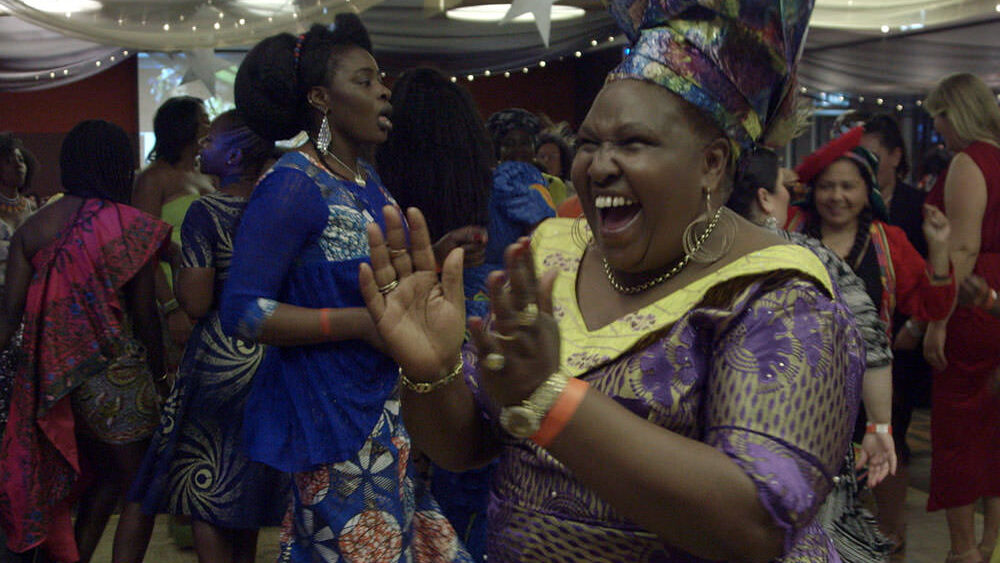Rosemary Kariuki is a one woman carnival of life. When Rosemary laughs – which she does, often, with hearty glee – it fills the room like a fire’s warmth. Her gift for hospitality and care underscores the way this well-known Kenyan Australian serves refugee and migrant women across Western Sydney, which is the subject of a new documentary included in the Sydney Film Festival.
“It doesn’t have to be money; it can be just a smile …” – Rosemary Kariuki
Luke just wants to be free to devote himself to Jesus
#hometobilo campaigner says God placed Tamil asylum seekers in her life for a reason
Why Edris Cheraghi is locked away with no hope of release
The PM is a good Pentecostal but is he a Good Samaritan?
“People will learn how to share love,” explains the star of Rosemary’s Way, about the lessons to be learned from watching this doco-window into her world – “how they can make a difference in other people’s lives [or] how they can change the world with whatever little they have.
“It doesn’t have to be money; it can be just a smile or welcoming a refugee, migrant or another person to your home.
“If someone is having a bad day, make a cup of coffee for them. If your neighbour doesn’t engage, take their bins out or in and that will start a conversation.
“That means a lot, because many people are very isolated and very unhappy.”
Rosemary is the multicultural community liaison officer with the Parramatta police force and works with local volunteer organisation African Women’s Group. She’s also a great friend of my sister-in-law Gloria and mother-in-law Amanda, and so my family has come into the appealing orbit of Rosemary. Guaranteed that if you only get a few minutes with this inviting “mother hen”, you’ll be struck by Rosemary’s generosity – she puts on amazing banquets in her Oran Park home – and her desire to help others.
The women Rosemary regularly connects with are from Africa, India, Iraq, Iran, China, and Peru, as well as other parts of the planet. These women often experience social isolation, cultural and language barriers, or struggles common to those who have had to flee their homeland. Rosemary reaches out to them by opening up her home for multi-cultural meet-ups, or being a driving force behind the annual African Women’s Dinner – a night of singing, dancing, stories and shared experience, for women across the ethnic spectrum. Regular bus trips to regional NSW and cultural markets are also connection points between Rosemary and the migrant and refugee women in Western Sydney.
“When I came to Australia in 1999, no one gave me information,” shares Rosemary, who hails from Kenya’s Rift Valley region. “I realised it’s better you are given information than money or anything else, because knowledge is power.”
One of 16 children – “one father, two mums” – Rosemary finds it easy to offer to others what it is like to be part of a communal nuclear family. And the driving force for her wanting to show such relational love runs deep and divine.
“My Christian faith is the centre of what I do,” explains Rosemary. “I’m a practising Catholic and when I was in college at 19 years of age, one Catholic nun told us in class that we see Jesus in everyone.
“If you hit that person, you are hitting Jesus. If you spit on his face, you are spitting on Jesus’ face – and that resonates with me till today.
“We are all made in God’s image and that’s why we need to see that everyone around us is happy, by starting with me.”
Rosemary is one of those people who always seem to be happy. And you feel better just being around her. But, like the rest of us, her life has not been without pain and suffering. Rosemary was a victim of sexual abuse in Kenya, something she had not even shared with close family members – until her life story was featured in the 2016 theatre-production-turned-movie The Baulkham Hills African Ladies Troupe. Directed by Ros Horin – who also made Rosemary’s Way – The Baulkham Hills African Ladies Troupe gave Rosemary a platform where she was comfortable to express what she had been through, and how living through it inspires her to help others.
“Let us start sharing the love.” – Rosemary Kariuki
The online release of Rosemary’s Way arrives not only in time for Refugee Week 2020, but also amid Black Lives Matter protests and the ongoing social consequences of the COVID-19 pandemic. Rosemary suggests that Refugee Week is a good time to reflect on loving our neighbour, and she hopes her documentary spreads that affirming message.
“Migrants chose to migrate but refugees do not choose where they live – and that’s why we need to open our hands to them,” says Rosemary.
“Rosemary’s Way has come at the ideal time when there are a lot of issues happening in the world, especially for the minority, [with] COVID-19 and Black Lives Matter.”
“We are all the same, we can share the world equally if everyone can care, respect and recognise that we are one big family.
“My wish is to see Australian families help refugees and migrants integrate in the society, and not reject them; that they become part of the mainstream.
“Rosemary’s Way will open people’s minds so that we can all live together happily as one big family.
“Let us start sharing the love.”

